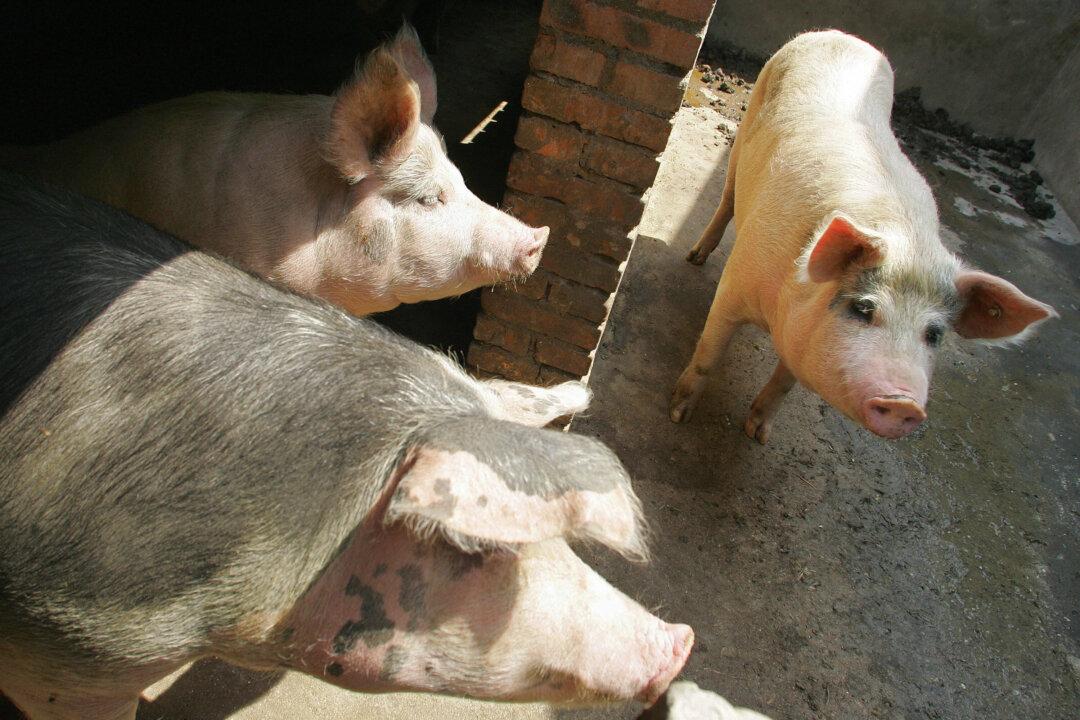Pig farmers in China are finding themselves in a financial pickle as the country’s pork prices slump, while unfavorable regime policies are making it difficult for farmers to sustain their businesses.
Earlier this year, Zhao Kai (a pseudonym)—a hog farmer in Qiqihar, a city in the northern Heilongjiang Province—bought some piglets, each costing over 1,500 yuan (about $235). That investment has since become a burden, he told the Chinese-language Epoch Times in a recent interview.





